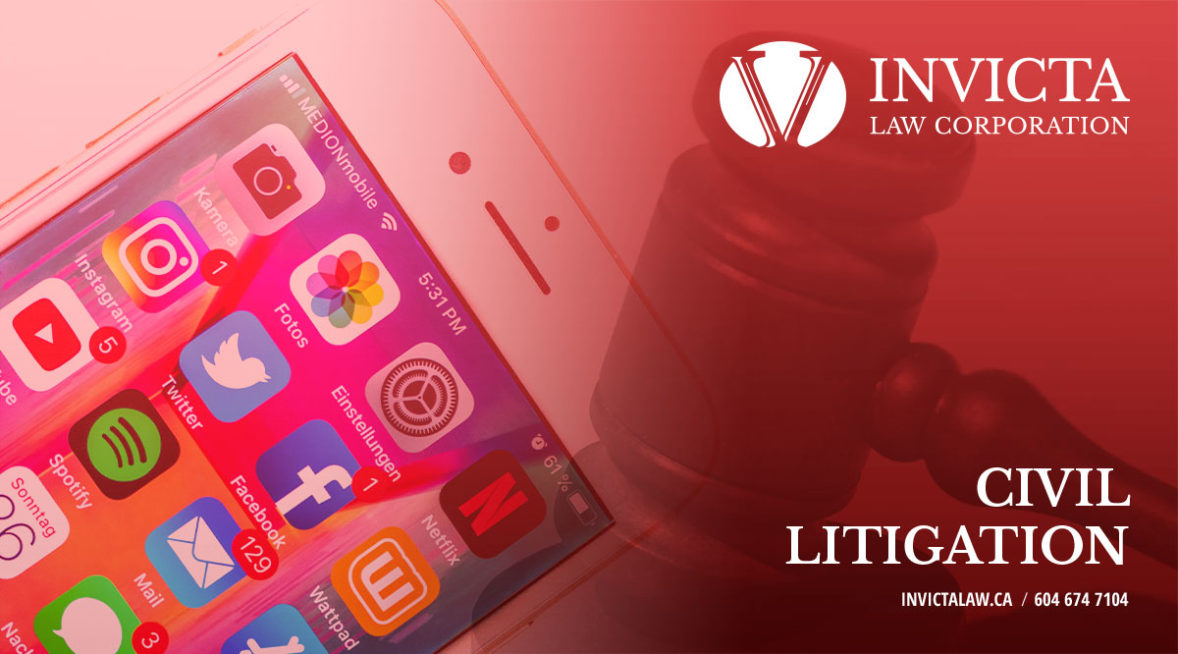Defamation, which is an unmerited attack on an individual’s reputation, can have devastating impacts on both an individual’s personal and social life.
Opinions expressed to third parties that have the potential to damage another person’s reputation may result in legal action for defamation. In a world of millions of daily social media interactions involving controversial issues and clashing personalities, the potential for conflict is heightened.
What Qualifies as Defamation?
Although the Canadian Charter of Rights and Freedoms guarantees freedom of expression, the rights and freedoms in the Charter are also subject to “reasonable limits prescribed by law”.
The Criminal Code of Canada states that “a defamatory libel is matter published, without lawful justification or excuse, that is likely to injure the reputation of any person by exposing him to hatred, contempt or ridicule, or that is designed to insult the person of or concerning whom it is published.”
Defamation can be prosecuted as a criminal offence or litigated as a civil matter between private persons.
In British Columbia, there is a distinction between defamation in its written and spoken forms. If defamation takes place on a permanent record, such as an email, a newspaper article, or a social media post, it is considered libel. On the other hand, when there is no permanent record of the defamation, it is considered slander.
Defamation in Social Media
The sense of distance and impunity that comes with interacting with strangers through social media accounts encourages the proliferation of trolling activity and keyboard warriors.
When referring to others on Facebook, Instagram, Twitter and other social media platforms, it is prudent to be careful of what you say and how you say it. Information can be obtained and recorded for future legal action with costly consequences. Since defamation is a strict liability tort, a defendant who has been found to have made a defamatory remark without a valid defense will be liable regardless of intention.
A valid defense is that of “justification”, which requires the defendant to prove that the gist or sting of the defamatory expression was true. The defense will be successful as long as the defendant can show that the defamatory expression was substantially true not that it is just true.
Malicious social media posts can easily tarnish a reputation that took time and effort to build. If you have been unfairly attacked and believe that you are a victim of defamation, it is important to gather your evidence thoroughly and act quickly to protect yourself. Make print screens of such posts and get as much information as you can from the people who posted it.
If you are the one posting defamatory statements in social media
Again, we all have freedom of expression, however, our freedom ends where the freedom of someone else starts. Understand that you are free to say whatever you want, but those comments may result in costly legal actions against you.
The fine line is the way a person comments or expresses their sayings. For example, there is a very common scenario when someone asks for a recommendation of a professional in social media. If you make a defamatory comment about that person and you have not really worked with that professional, but you just don’t like them, you may be damaging their reputation and your statement may not have a defense.
If there is a problem with a professional, it’s better to report them to the proper regulatory body. This applies to doctors, lawyers, accountants, immigration consultants, and any other regulated professional. It is better to be on the safe side and not to cross the line of defamatory comments or posts that may cost you a lot.
If someone owes you money, it is also a breach of the law to post publicly about it. You have a legal action to follow and ensure you are paid back, etc.
For every action, there is a reaction. If you are talking about some else’s reputation and this is being damaged, then it may have costly consequences.





